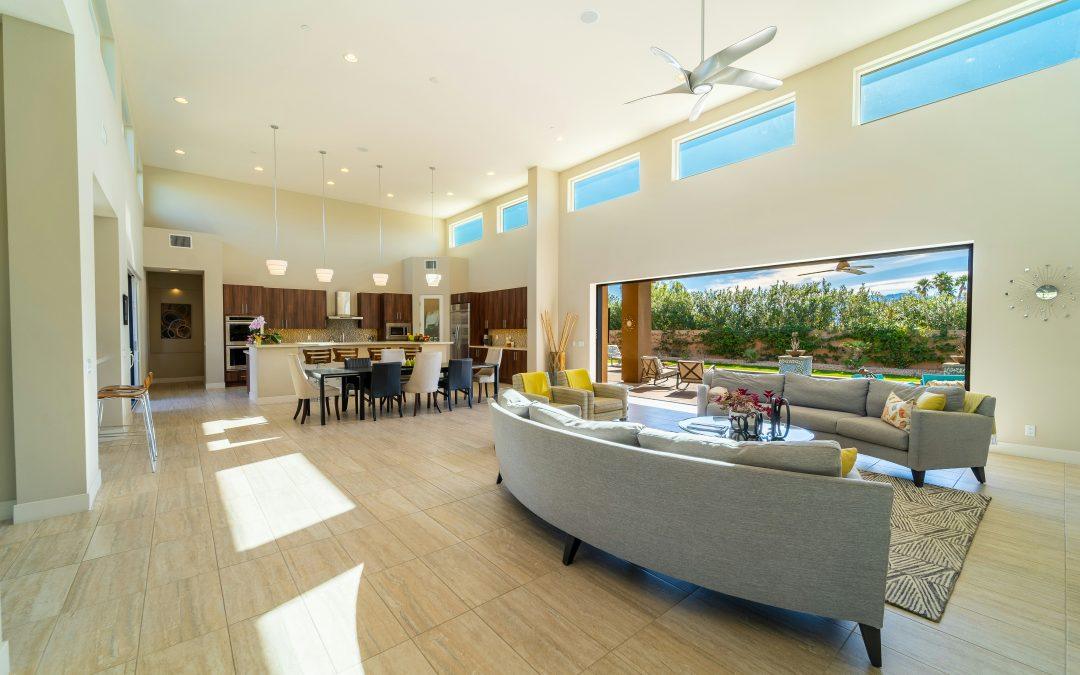In Florida’s drastic weather changes, especially during the summer, it can become very humid very quickly. So, it is important to protect your home’s HVAC system and ensure it is working adequately throughout the hot summers. This way, you can avoid mold, mildew or other damages from occurring.
One of the ways homeowners in Florida are protecting their homes this summer is by using a dehumidifier. But how does a dehumidifier work and how does it improve indoor air quality? Let’s find out in this post.
Does Humidity Affect Indoor Air Quality?
Yes, humidity affects the quality of the air inside your home. When indoor humidity levels are too high, your home can become a breeding ground for mold, mildew, dust mites, and bacteria. These allergens and irritants can reduce air quality and pose serious health risks to individuals with allergies, asthma, or other respiratory conditions.
How high humidity impacts your health
- Increased Allergens: Dust mites and mold thrive in humid environments, potentially triggering sneezing, coughing, and skin irritation.
- Worsened Respiratory Issues: Excess moisture can aggravate asthma and cause difficulty breathing.
- Unpleasant Odors and Mold Growth: Damp air often leads to musty smells and visible signs of mold on walls, ceilings, or furniture.
- Poor Sleep Quality: High humidity makes it harder for the body to regulate temperature, leading to discomfort and restless sleep.
What are the ideal indoor humidity levels?
To maintain a healthy living environment, it’s best to keep indoor humidity between 45% and 55%. Levels above 60% can quickly lead to bacteria growth and air quality degradation, while very low levels can cause dryness and irritation in the skin, eyes, and throat.
How Does a Dehumidifier Improve Air Quality?
A dehumidifier significantly enhances indoor air quality by removing excess moisture from the air. When humidity levels rise above the recommended range, your home becomes more prone to allergens, unpleasant odors, and structural damage. By extracting moisture, a dehumidifier helps create a cleaner, drier, and healthier indoor environment.
Tip: Purchase your whole-home dehumidifiers from a NACDA-certified HVAC expert in Florida. Get the best dehumidifiers that easily integrate with your HVAC system, keeping humidity levels between 45% and 55% all year round.
Benefits of using a whole-home dehumidifier:
Reduces Allergens and Respiratory Irritants
A dehumidifier lowers dust mite populations, which thrive in humid air and often trigger allergies or asthma. It also prevents mold and mildew growth, reducing exposure to airborne spores that can irritate lungs, eyes, and skin. By doing these, it helps ease symptoms for people with asthma, sinus issues, or chronic respiratory conditions.
Prevents Moisture-Related Damage
By extracting humidity from the home, a dehumidifier stops condensation on windows, walls, and ceilings that can lead to paint peeling, stains, and water damage. This helps protects wooden furniture, flooring, books, and electronics from warping or corrosion due to damp air. A dehumidifier also helps preserve your home’s structural integrity by preventing rot and mold within walls and insulation.
Improves Overall Comfort
Using a dehumidifier helps remove the sticky, clammy feeling you may experience in your home during high humidity seasons like the summer. It helps keep indoor air feeling cooler and lighter, especially in warm climates and reduces musty odors caused by mold and mildew in basements, bathrooms, or poorly ventilated rooms.
Supports HVAC Efficiency
When air is less humid, your air conditioner doesn’t have to work as hard, leading to improved energy efficiency and lower electricity bills. Having a dehumidifier helps maintain consistent indoor temperatures, making your HVAC system more effective and reducing maintenance needs, even during harsh weather.
How to Choose the Right Dehumidifier for Your Florida Home
Living in Florida means dealing with high humidity nearly year-round, especially during the hot, rainy summer months, so choosing the right dehumidifier is important. Here’s what you need to consider when shopping for a dehumidifier in the Sunshine State:
Size and Coverage Area
Start by assessing the square footage of the area you want to dehumidify and how damp it tends to get.
- Small Rooms (up to 500 sq. ft.): Ideal for bathrooms, closets, or single bedrooms. Look for compact, quiet units.
- Medium Spaces (500–1,000 sq. ft.): Good for living rooms or large bedrooms. Choose a unit with a larger water tank and auto-drain options.
- Large Areas or Entire Homes: Consider a whole-house dehumidifier, especially in coastal or flood-prone areas like Miami, Tampa, or Jacksonville. These systems integrate with your HVAC and manage humidity across your entire home.
Florida-Specific Features to Look For
Given Florida’s hot and humid climate, look for dehumidifiers with the following features:
- High-capacity moisture removal (50–70 pints/day or more)
- Auto-humidistat to automatically maintain your preferred humidity level
- Continuous drain option (great for avoiding daily emptying in places with extreme humidity)
- Energy Star certification for better energy efficiency and lower utility bills
- Built-in air filters to trap allergens and dust
Room Placement Tips for Florida Homes
Certain parts of your home are more vulnerable to humidity:
- Basements and crawl spaces: Use high-capacity units or install a drainage system.
- Bathrooms and kitchens: Choose models with compact sizes and strong ventilation support.
- Coastal homes or beachside properties: Opt for whole-home systems to prevent salt air corrosion and mold growth.
Best Humidity Settings for Florida Homes
Aim for 40%–50% relative humidity setting on your dehumidifier. During peak summer months, you may need to set your dehumidifier to closer to 40%. However, in milder winters 45%–55% can offer better comfort without drying out the air too much. You can also use a hygrometer to monitor indoor humidity levels and adjust your settings as needed.
Consider a Whole-Home Dehumidifier for Your Florida Home
If your home constantly feels damp or smells musty, even with the AC running, a whole-home dehumidifier may be the best solution. These systems are installed directly into your HVAC, are low-maintenance, with automatic drainage and are more energy-efficient for larger homes. It is better for consistent humidity control across all rooms, especially in older Florida homes or in areas with high flood risk.
The Ties360 whole-home dehumidifier easily integrates with your existing HVAC system and comes with NACDA-certified professional assessment and installation services. This is the best way to maintain top-notch indoor air quality in your home all year round.

